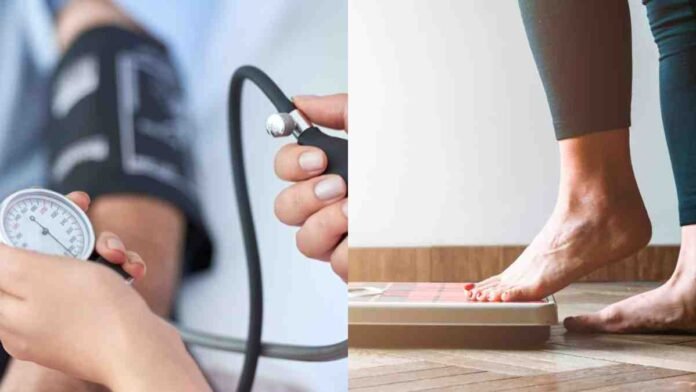Hypertension or high blood pressure is a common condition that increases the risk of heart disease, stroke, and other serious health problems. Losing weight is a good strategy to control and lower high blood pressure. Here’s how losing those extra pounds can help you feel better overall and reduce blood pressure.
Understanding the Connection Between Weight and Blood Pressure
Being overweight can put additional strain on your heart, which raises blood pressure. Your body requires more blood when you are overweight, particularly in the abdominal area, in order to provide your tissues with oxygen and nourishment. Your blood pressure rises as a result of your heart having to pump more blood through your blood vessels due to the increased demand.
The Benefits of Weight Loss for Blood Pressure
- Reduced Strain on the Heart: Your heart works less hard as you lose weight. Your blood pressure may drop because your heart won’t have to work as hard to pump blood to as much fat tissue.
- Improved Blood Vessel Health: Your blood vessels’ ability to operate can be enhanced by losing weight. Carrying too much weight might harm your blood vessel walls, causing them to stiffen and narrow. Losing weight can help repair this damage by making it easier for your blood vessels to relax and expand, which lowers blood pressure.
- Decreased Insulin Resistance: Insulin resistance, a disorder in which your body fails to use insulin as intended, is linked to obesity, especially around the abdomen. This may raise blood sugar levels and raise the possibility of hypertension. Reducing body weight enhances insulin sensitivity, perhaps lowering blood pressure.
- Lowered Inflammation: Chronic inflammation is associated with obesity and has the potential to exacerbate hypertension. Reducing bodily inflammation through weight loss lowers blood pressure.
Tips for Achieving and Maintaining a Healthy Weight
- Adopt a Balanced Diet: Prioritize eating a diet high in whole grains, fruits, vegetables, lean meats, and healthy fats. Limit the amount of processed meals, sugar-filled beverages, and high-sodium goods you consume because they might cause weight gain and elevated blood pressure.
- Exercise Regularly: Aim for 150 minutes or more per week of aerobic activity at a moderate to high level or 75 minutes or more at a high intensity. Engaging in physical activities such as cycling, swimming, jogging, and walking can enhance heart health and burn calories.
- Monitor Portion Sizes: Pay attention to portion proportions to prevent overindulging. You may manage the amount of food you eat by using smaller plates, monitoring portions, and being aware of your hunger signals.
- Stay Hydrated: You can feel fuller and resist the urge to overeat by staying hydrated throughout the day. Sometimes people confuse their thirst for hunger, which results in needless munching.
- Get Adequate Sleep: Hormones that control appetite and hunger can be upset by sleep deprivation, which can result in weight gain. To aid in your weight loss efforts, try to get between seven and nine hours of good sleep every night.
- Manage Stress: Weight gain and overeating can result from ongoing stress. To keep stress levels in line, practice stress-reduction strategies including mindfulness, meditation, deep breathing exercises, and frequent physical activity.
- Seek Support: Think about consulting a dietitian, joining a weight loss organization, or asking friends and family for help. On your weight loss journey, having a support system can help you stay accountable and inspired.
Conclusion
Losing weight is an effective strategy in the fight against hypertension. A balanced diet, frequent exercise, and stress reduction are all important components of a healthy lifestyle that will help you reach and maintain a healthy weight, lower blood pressure, and enhance your general health. Recall that even a small reduction in weight can have a big impact on your well-being and blood pressure, therefore start making small, sustainable changes today.



